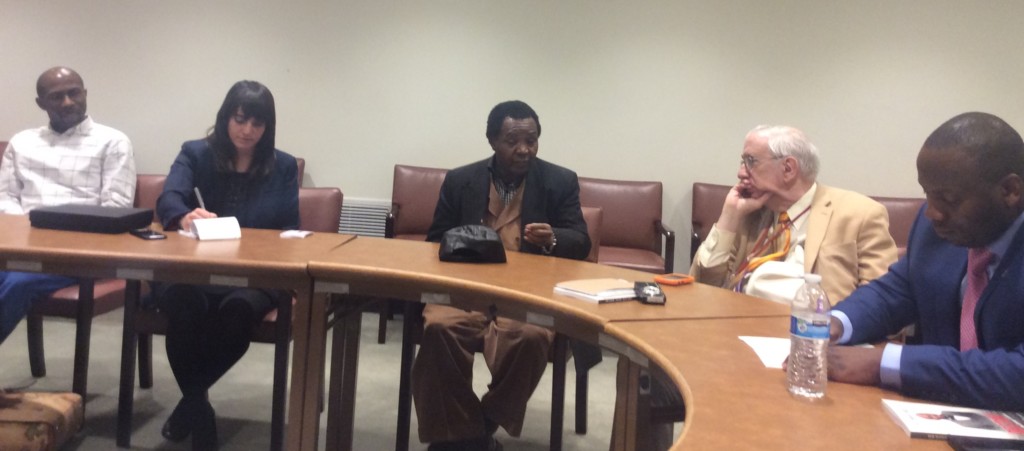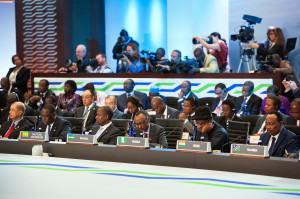As an outlet to advance public diplomacy, the news media has the potential to shape and influence images of countries. It can stimulate public support for a country’s views and values to targeted audiences that have completely different value systems and political traditions.
It is against this background that Center for Media and Peace Initiatives, CMPI hosted a public forum entitled “Media and Public Diplomacy: New Directions for Journalism and International Relations” with Zambian diplomat and journalist Chibaula Silwamba and esteemed guests at the United Nations headquarters in New York.
Mr. Silwamba who is the outgoing head of media and public relations at the Permanent Mission of the Republic of Zambia to the United Nations. He discussed pathways to encourage diverse and independent voices in a country where the government provides the majority of news media advertisement and whose motto is ‘One Zambia, One Nation.’
Media is a key ally in projecting an image for Africa that counters stereotypes, promotes growth and reduces poverty levels, Silwamba explained. African governments, he emphasized must be focused on making their countries look attractive and friendly to foreigners while also setting the stage for others to understand their positions in the international arena.
‘If we leave it to others to tell our stories, the narrative will be the same. Negative.” Mr. Silwamba said, adding that foreign media outlets might be hesitant to paint African countries in a positive light for fear readers will think, “Africa is doing better than we are.” He also cited inaccurate reports from large, international media outlets in which the reporter neglected to go into the field to check a story.
Educated at the London School of Economics and Political Science, Mr. Silwamba served as Vice-Chairperson to the UN Committee on Information as a representative of the Africa Group from 2012-2013 and as Rapporteur for the Committee from 2013-2015. An advocate for press freedom, he served as the Zambian representative of Rapporteurs Sans Frontiers.
Over the course of his journalism career, Mr. Silwamba has covered three Zambian presidents, exposed a controversial audit report, which resulted in his removal from a beat covering the Zambian Parliament and reported on the detrimental effects on corruption on the southern African region. He has also reported for newspapers in Kenya, Tanzania and Uganda, as well as for international news outlets such as the BBC, CNN and France24.
Zambia’s media is classified as “partly free” according to Freedom House, as government is prone to heavy censorship methods and provides the majority of advertising revenue. The media climate in Zambia comprises of government owned media outlets, as well as some independent blogs and radio stations. The Post newspaper, for which Mr. Silwamba served as news editor, is independently owned and provides steady critiques of the Patriotic Front government. Some claim the paper panders to the business interest of its editor Fred M’membe, whom the Edgar Lungu administration arrested with his wife and deputy editor in June 2016, two months prior to national elections, over disagreements regarding the temporary closure of the Post after a tax dispute.
Mr. Silwamba cited journalist deaths, abuse of female journalists, insufficient resources and limited media security as the primary obstacles to a free and independent press in the world.
“I grew up in a rural village. We were taught one has to be very brave, for you never know when we will meet a lion,” he said. “As a result, I went into situations as a reporter when others, who had grown up in the cities, where afraid.”
Guest Isaac Newton Kinity , Chairman, Kikimo Foundation for Corruption & Poverty Eradication echoed the sentiment that fear plays a decisive role in news reporting. In his country, extrajudicial killings, journalist disappearances and corruption scandals involving divestment of assets to foreign bank accounts color the landscape of local news output, he said.
Mr. Kinity who previously served as Secretary-General Kenya Civil Servants Union announced several steps undertaken by him and other to persuade Kenyan government and the United Nations for anti-corruption reform that targets African leaders who stash their ill-gotten wealth in Western countries.
In a response to questions from the audience, Mr. Silwamba called for greater regional cohesion in news media output among neighboring African nations to promote foreign aid and investment. Investment alone is not enough, he added, as it must translate to alleviating poverty, reducing unemployment and bridging exorbitant income gaps.
Despite steady growth and Chinese investment in copper mines and railways, Zambian wealth is concentrated in the top ten percent, while 13 percent of the population are unemployed 47 percent live below the global poverty line.
A harmonious relationship with the media, Mr. Silwamba postulated, will help to evade ‘scapegoatism’ for Africa’s problems, promote proactive messages and encourage debates from diverse voices around the world.
Other guests who spoke at the event were Gabriel Gershowitz, an attorney with Weil, Gorshal & Manges LLP, New York, and George Baumgarten of the United Nations press corps.
The highlight of the event was a presentation of a gift to the outgoing Zambian diplomat, Mr. Chibaula Silwamba by CMPI.






